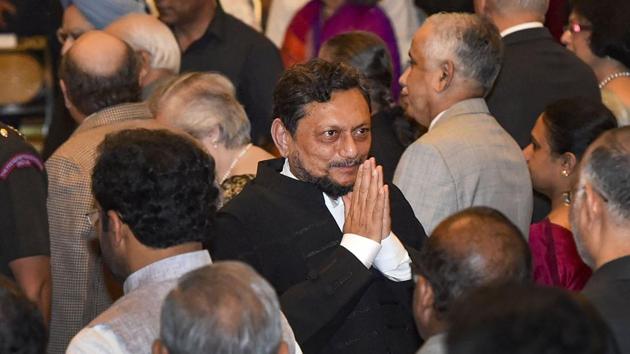The wisdom in CJI Bobde’s words
Vengeance can lead to pre-institutional disarray, fixing over due process, haste over efficiency
Wisdom does not call for a discussion, nor honesty for an essay. Philosophic truths are for absorption, not analysis.

When a statement is made from the depths of knowing, it acquires the pith and form of a saying — it becomes an aphorism. One does not look for the whys and wherefores of an aphorism. One does not ask where it is coming from, or where it is headed. It is just there, to be observed, experienced, reflected upon. As one might, say, a sunrise or a shooting star.
Chief Justice Sharad Arvind Bobde’s observation on Saturday that “justice should not be revenge” belongs to that category of statements. It needed no paraphrasing. But he went on to give one — one that was as masterful as the original aphoristic statement, “I believe”, he added, “ justice loses its character as justice if it becomes revenge.”
Reports of this statement of the Chief Justice of India at an event in Rajasthan linked it expectedly enough to the tragic-beyond-belief rape and murder in Hyderabad of a young woman; the calls for quick , instant, retribution; and the bloody aftermath 10 days later. This was the nature of reportage, even its duty. But as one who found completeness, repleteness and a kind of absolution in the statement, I found that contextualisation unnecessary, and in fact, unwanted. I did not want to think of what may have been the trigger for the statement. I just wanted to take its wisdom, its power and its moral force in — for its own sake. And as I did that, I saw with the same sense of gratitude, more coming from the same aquifer of insight. “Justice”, he continued “ought never to be instant”.
It has been a long while since one heard a high functionary in India say something that is not a cliché, is not clever, not intended to strike awe, stoke fear or sell an idea that has no takers outside the world of the awed, fearful or gullible. It has been a long, and barren, while.
And so this shaft of truth comes as both a revelation and a relief.
Aphorisms do not, I said, call for analysis, only experiencing. And it is precisely as the latter — experiencing the force and gravity of Justice Bobde’s remarks — that the following thoughts came to me.
We, as a people, have traditionally been enamoured of the imagined gutsiness in eent ka javab pathhar se (to a brick hurled I will return a flying stone). We have admired javab (reply, rebuttal, retort, repulsion) over the considering of an issue in the manner suggested by the great Mahavira in his theory of anekantavada (not oneness). We have, from the times of the Mahabharata, been traditionally inclined to settling scores by combat. But the surface density of these flying missiles in our society, in our politics and, in fact, in all departments of life, has now broken all previous records of retaliation. The snails pace of judicial proceedings has, without a doubt, led to impatience now exploding all around us, a fact that Justice Bobde alluded to in his lecture.
The pulse of vengeance beats faster and stronger now than it ever has. And the garland of admiration is reserved now, not for the thinking mind or the probing intellect, but for the swinging arm, the swaggering foot. The logical end of this is a reversion to pre-institutional disarray, an atavistic recoil to medieval bedlam.
The danger in this is not just an erosion of coda, of canons of law in the world of crime and punishment alone, but the valorisation of “fixing” over due process, of the specious claim of “quick action” over sound working. In other words, of haste over efficiency.
Ours has become an “instant culture”, quick to slight, quicker to be slighted. Swift to injure, swifter to be injured. Fast to pronounce verdicts, faster to counter-pronounce refutations. Our legislatures have little time to ponder issues. Our governors, and even the highest functionary in the land, our esteemed president, are obliged to consider proposed enactments in the eye of storms. A state can become two union territories, a legislature put to sleep, a government sacked and another sworn in, in one fleeting instant. And all this, as our electronic media, being time-kept to the second, “breaks” this news 24*7, with the jerks and jolts of cardiac arrhythmia.
Today, in popularity ratings, diligence is out, dramatics are in; veracity is out, velocity is in. Ours are times of fait accompli.
Who and what is imperilled? In a word: Justice. In four words: The character of justice. In twelve, the future of a constitutionally governed nation-State in a retributive country. Which is why the words of our chief justice come as balm to justice’s aching soul.
Gopalkrishna Gandhi is distinguished professor of history and politics, Ashoka University
The views expressed are personal






